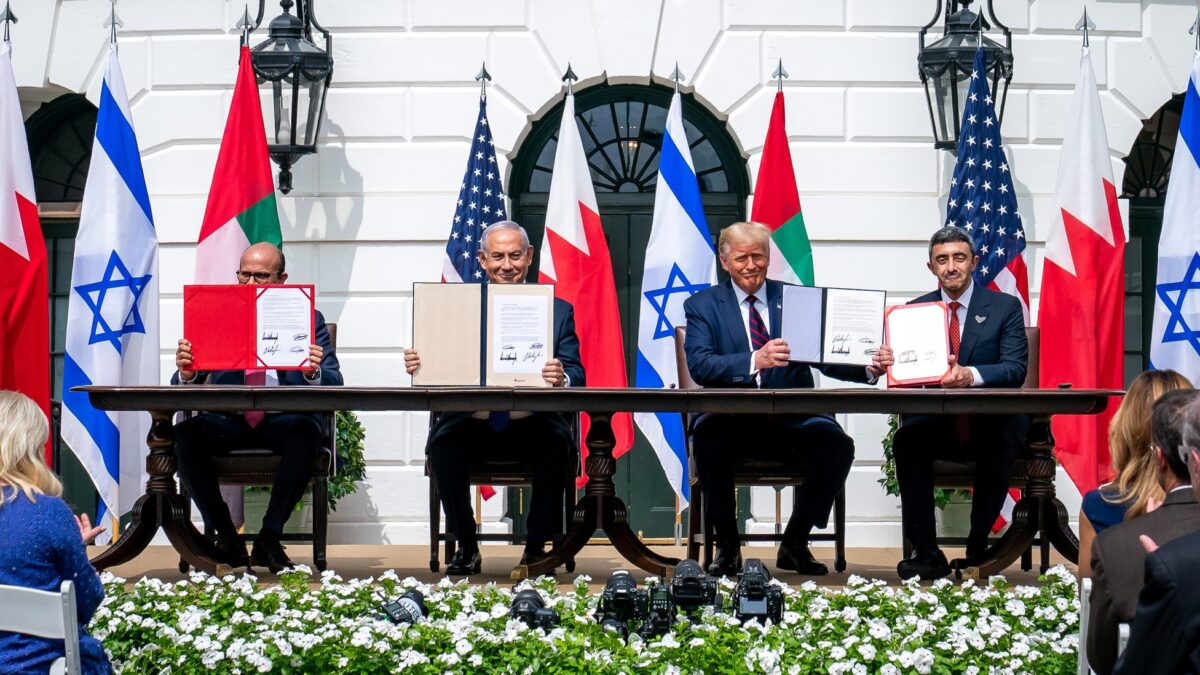A few days ago, at a Zoom event marking the first anniversary of the signing of the Abraham Accords at the White House in Washington, D.C., Israeli Foreign Minister Yair Lapid invited yet more Arab nations to normalize relations with Israel.
“The Abraham Accords club is open for new members as well,” said Lapid in a flight of fancy suggesting that a new procession of Arab countries are clamoring to join it.
U.S. Secretary of State Antony Blinken, who hosted the event, delivered a similar message. “We want to widen the circle of peaceful diplomacy because it’s in the interest of countries across the region and around the world for Israel to be treated like any other country,” he said.
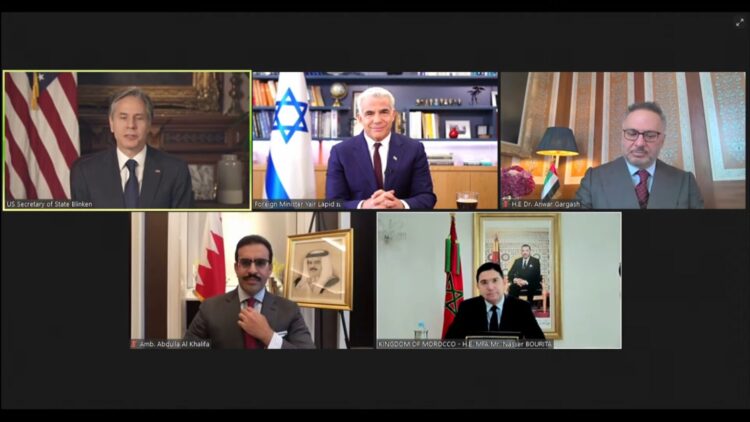
Last month, U.S. President Joe Biden told Israeli Prime Minister Naftali Bennett that he fully supports the Abraham Accords and will work to develop and expand them.
The Abraham Accords were signed in 2020 within a span of four months by the United Arab Emirates, Bahrain, Sudan and Morocco, all of which agreed to establish normal political and economic relations with Israel.
“These agreements proved that Israel is an integral and permanent part of the Middle East, with much to contribute to the stability and prosperity of the region,” said Haim Regev, Israel’s ambassador to the European Union, this week.
These historic accords might have remained figments of the imagination without the bold and persistent intervention of the then U.S. president, Donald Trump, who has been given insufficient credit for having pushed them through.
Fuelled by Trump’s upbeat comments, speculation abounded that more Arab states, perhaps even Saudi Arabia, would normalize ties with Israel.
This did not happen, much to Israel’s chagrin and disappointment.
The reason is abundantly clear.
Unless the gnawing Palestinian problem is resolved through a two-state solution, which is becoming increasingly unattainable with each passing year, it is highly doubtful whether the Abraham Accords club membership will grow.
Israel’s prime minister, a champion of the Jewish settlement movement in the West Bank, is adamantly opposed to Palestinian statehood. And so was his predecessor, Benjamin Netanyahu, who merely paid lip service to it to appease the United States.
Although Blinken came out in full support of the Abraham Accords and promised to encourage more countries to follow suit, he conspicuously raised the Palestinian issue, the so-called elephant in the room.
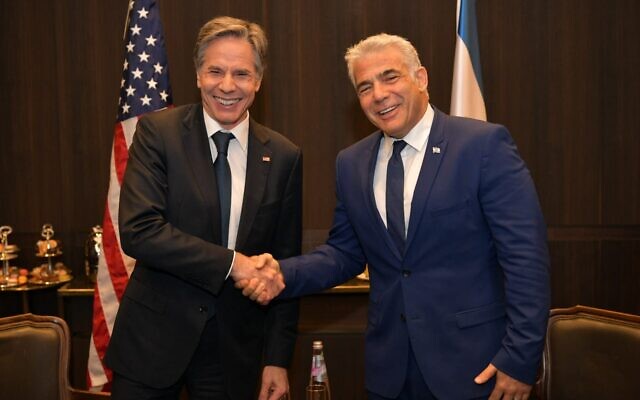
“We all must build on these relationships and growing normalization to make tangible improvements in the lives of the Palestinians,” he said. “Palestinians and Israelis deserve equal measures of freedom, security and opportunity and dignity,” he added in an implicit reference to a two-state solution.
At a venue in New York City last week celebrating the first anniversary of the Abraham Accords, an event attended by Israel, the United Arab Emirates, Bahrain and Morocco, the U.S, ambassador to the United Nations, Linda Thomas-Greenfield, pledged to expand the existing normalization agreements by bringing in new members.
But she reminded the attendees that the United States remains committed to the two-state solution, a proposal that Arab countries have consistently advocated and that Israel has resisted.
In the meantime, Israel and three of its four Arab partners in the Abraham Accords are developing their bilateral relations at a relatively rapid pace.
Israel’s trade ties with the United Arab Emirates are booming. In the past year, they have signed 60 memorandums of understanding covering a wide range of endeavors from aviation and tourism to investment and agriculture.
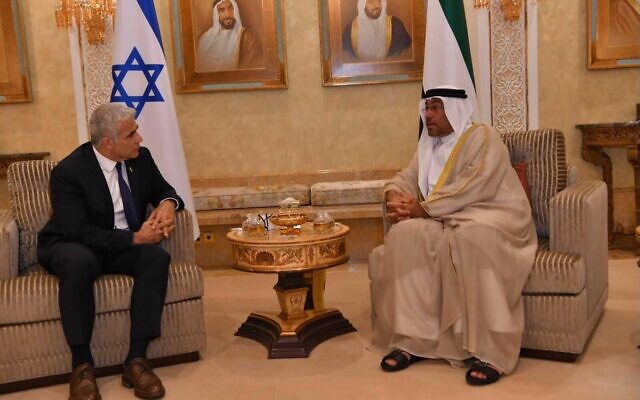
Earlier this month, the United Arab Emirates’ economy minister, Abdullah bin Touq, disclosed that the annual volume of trade has grown to about $600 million and could reach more than $1 trillion over the next ten years.
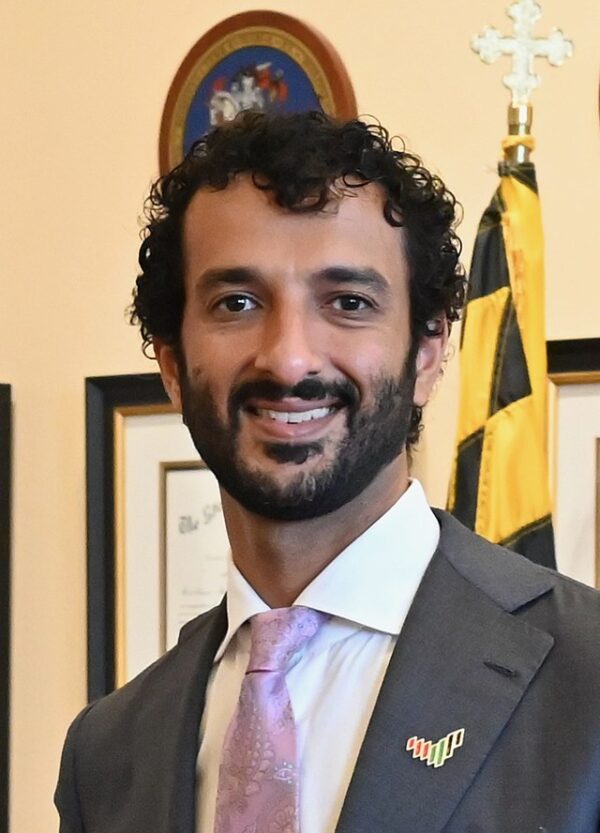
By comparison, Israel’s trade with Egypt and Jordan — the first two Arab countries to sign peace treaties with Israel — is on a much smaller scale. According to the Central Bureau of Statistics, Israel’s trade with Jordan per year has increased to $224 million, while Israel’s corresponding trade with Egypt has reached $122 million.
Israel’s trading relationship with Bahrain has only just begun. Last week, Bahrain’s first ambassador to Israel, Khaled Yousif al-Jalahma, presented his credentials to President Isaac Herzog at a ceremony in Jerusalem.
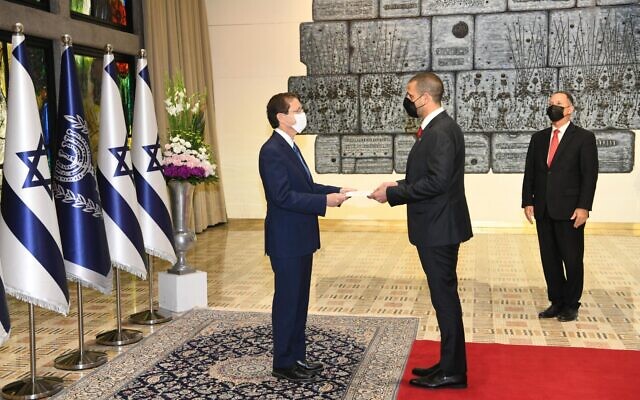
Lapid is scheduled to visit Bahrain later this month to open Israel’s embassy in Manama.
Israel’s relations with Morocco are currently on the liaison office level, but are expected to be upgraded to full diplomatic relations in October, said Lapid during his visit to Morocco in August.
Herzog invited King Mohammed VI of Morocco to visit Israel. He did not respond to the invitation, but in a letter addressed to Herzog, he praised the resumption of relations between Morocco and Israel and expressed the hope that the Abraham Accords “will promote the prospects of peace for all peoples in the region.”
Sudan failed to send a representative to any of the formal events commemorating the anniversary of the Abraham Accords. Sudan’s normalization agreement with Israel has yet to be finalized by the military regime, which seized power in 2019. While the leadership of the Sudanese armed forces support official ties with Israel, civilians in the government are wary.
Sudan’s failure to ratify the agreement in full suggests that Israel and the United States will have to work harder to extend the Abraham Accords, says Jared Kushner, who was Trump’s senior advisor.
“If these agreements are not nurtured, we run the risk that they could go backward,” he said at an event in Washington last week. “But if we nourish them properly, the potential for what can come from them is enormous and beyond our expectations.”
True enough. But the scope of the Abraham Accords is likely to remain limited unless Israel and the Palestinians reach a peace agreement.
At the moment, no such scenario can be glimpsed on the horizon.
